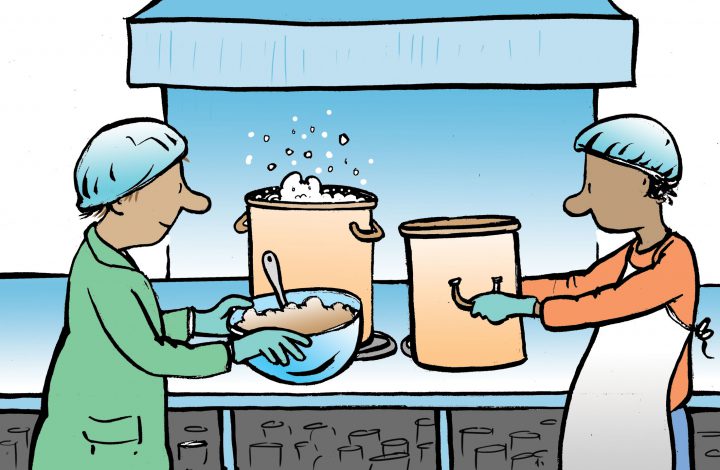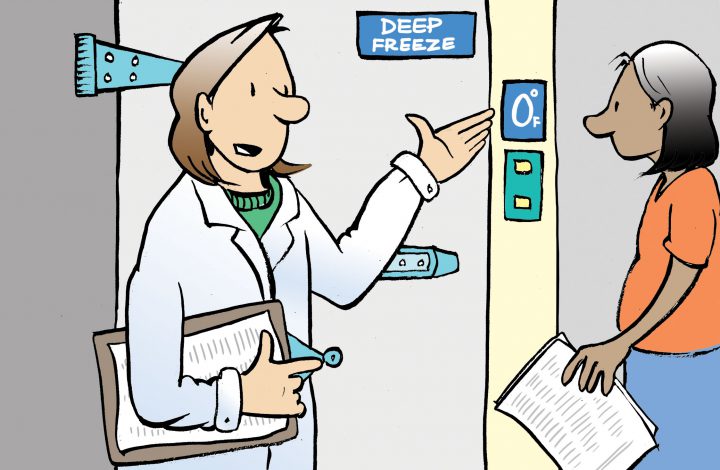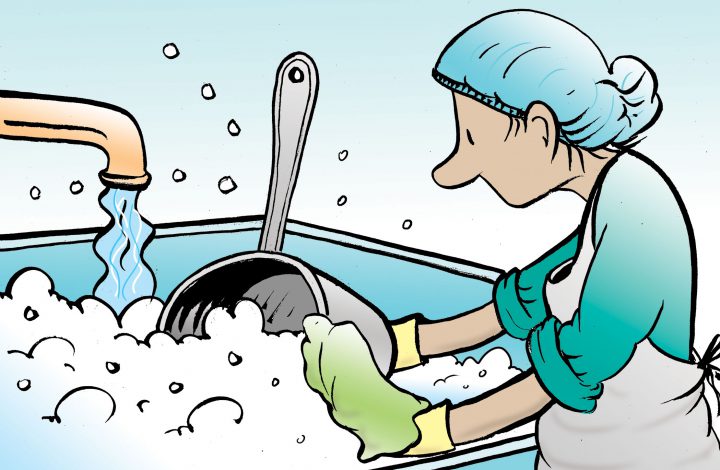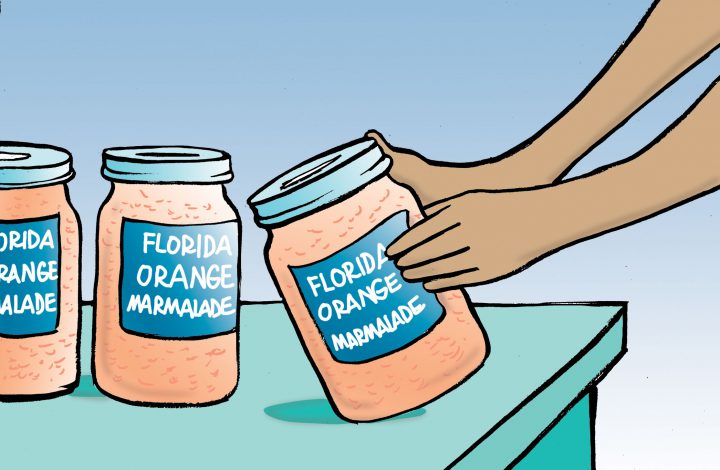Regulatory Agencies
In this guide
- Florida Department of Agriculture and Consumer Services (FDACS)
- Florida Department of Business and Professional Regulation (DBPR)
- Florida Department of Health
- City, County, and other State Agencies
These agencies inspect and permit many types of food businesses to ensure that business practices are in compliance with food safety regulations. Starting a farmers’ market business in Florida begins with determining if a food safety permit is required, and if so, identifying which agency issues the permit. Selecting the appropriate agency depends on the type of food sold to the public, how the food product is processed, and where and how the product is sold. This guide will describe the three primary food regulatory agencies in Florida, list the food operations that are exempt from state regulatory supervision, and mention additional permits and licensing that may be needed for specific food products.
The three major state food safety enforcement agencies in Florida are:
Florida Department of Agriculture and Consumer Services (FDACS)
Florida Department of Business and Professional Regulation (DBPR)
Florida Department of Health (DOH)
Each agency plays a different role in regulating food operations. FDACS permits the majority of retail and wholesale operations, while DBPR generally permits restaurants, catering, mobile concessions, and prepared food served ready to eat. DOH primarily regulates institution-based food services in places like schools, hospitals, jails, and nursing facilities and the agency also oversees water safety and the certification of potable water sources. Most businesses selling food in Florida farmers’ markets will require permitting from either FDACS or DBPR, unless they are exempt from state licensing through the Cottage Food law.
The Florida Department of Agriculture and Consumer Services ensures that businesses selling food to the public are selling, storing, and preparing food in a way that is in compliance with state and federal food safety regulations.
The agency permits most retail and wholesale food businesses and processing facilities in Florida including farmers’ market businesses and mobile vendors selling prepackaged foods, non-potentially hazardous food items, and some temperature-regulated (refrigerated or frozen) products.
With some exceptions, FDACS does not regulate mobile operations that process, prepare, or serve potentially hazardous food for on-site consumption by the customer. All food vendors licensed through FDACS must process and prepare products in a permitted facility. (For more information, visit the Kitchens guide).
For more information on qualifying products and vending criteria visit the FDACS Mobile Vendor Inspection webpage, or to schedule an appointment visit FDACS Food Establishment Inspection page or call 1-800-HELP-FLA (435-7352).
The Florida Department of Business and Professional Regulation ensures that most potentially hazardous prepared foods that are heat-temperature regulated and ready to eat are safe for sale to the public.
The agency permits Full Service Mobile Food Dispensing Vehicles (MFDV) that process or prepare foods on site. A Mobile Food Dispensing Vehicle must have hand washing and dishwashing capabilities, food protection, refrigeration, power, and a plumbing system. A MFDV operator performs nearly all food service activities inside the vehicle like food storage, cooking or preparation of food, dish washing, and serving. For information on the requirements for a MFDV, visit the MFDV licensing guide.
Common products permitted by DBPR include, but are not limited to:
| Refrigerated ready-to-eat prepared foods | Hot dogs and hamburgers | Warm or hot foods ready to eat | Ice Cream Cones | Cake and pie slices |
For more information on qualifying products and DBPR vending criteria, visit the DBPR Mobile Food Vending License page or call (850) 487-1395.
The Florida Department of Health (DOH) works to protect, promote & improve the health of all people in Florida through integrated state, county, & community efforts. DOH generally regulates food service establishments located in institution-based settings (such as schools, assisted living facilities, adult daycares, and detention facilities) as well as civic and fraternal organizations, bars and lounges that don’t prepare foods, and theaters that limit their food service to items customarily served at theaters (such as beverages, popcorn, hotdogs, and nachos).
In September 2018, several Florida agencies assumed the regulation of food services for some of their licensees: Department of Children and Families (child care facilities, child-caring agencies, etc.), Agency for Health Care Administration (hospitals and nursing homes), and Agency for Persons with Disabilities (group homes that support and provide services for persons with disabilities).
The DOH Drinking Water Programs within the Bureau of Environmental Health is responsible for the direct oversight of safe drinking water. For more information about safe, or potable, water documentation for food service inspection and permitting, contact a local health department or call (850) 245-4277.
Many farmers’ market food businesses in Florida fall under the regulatory oversight of either FDACS or DBPR, and there is some overlap in the jurisdiction of the agencies. The best means of identifying which agency regulates a farmers’ market business is to define and describe the nature of the products offered by the business as well as where, how and to whom the products will be sold. A well-thought-out business plan can clarify important questions that relate to agency jurisdiction. (For more information, visit the Business Plan guide on this website.) A representative from either regulatory agency can provide specific guidance on the permitting process.
Yet, not every farmers’ market business requires licensing and inspection by a state regulatory agency. Some mobile food vending activities are exempt from food safety regulations provided the sales are direct from the producer to the consumer.
Florida Cottage Food Law allows the sale of non-hazardous foods without a permit such as boiled peanuts, bread, cookies, cakes, candy, honey, jams, dry herbs, pasta, popcorn, vinegar, and other products prepared at home with specific restrictions. For more information, visit the Cottage, Retail or Wholesale? guide on this website. Small scale poultry producers can also sell meat and eggs with a Poultry Exemption Certificate.
For more information, visit the FDACS Limited Poultry and Egg Operation Requirements page. Whole uncut fruit and vegetables do not require food safety inspections if they are sold direct-to-the-customer. Live blue crabs are also exempt from food safety inspections, yet a seafood retail permit is required by the Florida Fish and Wildlife Commission. The chart below lists popular exemptions to food safety permitting requirements and more information can be found in the Florida Statutes, linked here.
| Exemption | Product | Criteria |
| Produce Stand | Whole, uncut produce | Unregulated produce cannot be sold from a state-permitted food establishment. Click here for more information. |
| Minor Food Outlet (convenience store, gas station, country store, etc.) | Commercially prepackaged foods, not potentially hazardous, and not time or temperature controlled for safety | Shelf space for exempt items cannot exceed 12 total linear feet and no other food can be sold. See the rule here. |
| Poultry & Eggs | Dressed poultry and whole shell eggs | Small farm operations with less than 1,000 laying hens annually for sale of shell eggs and/or 20,000 poultry annually for sale of dressed poultry. See this link for more details |
| Cottage Foods | Non-potentially hazardous foods prepared in a residence | Products must be prepared in a home kitchen and sold directly to the consumer, and may not be delivered through a third party nor sold in a permitted retail food venue. See this link for more information and a list of qualifying products |
| Live Blue Crabs | Live, fresh crabs | Sale of live blue crabs is not supervised by a state food safety regulatory agency, yet seafood retail vendors must acquire a retail license from Florida Fish and Wildlife Conservation Commission. Click here for more information |
State food regulatory agencies enforce national food safety standards established by the Food & Drug Administration’s (FDA) Food Safety Modernization Act (FSMA). The FDA regulates standards and guidelines from the production to the sale of food, and the agency relies on inspections of other Federal, State, and local agencies to meet its inspection mandate for domestic facilities or the Produce Safety Rule for farm stands mentioned above.
The USDA regulates requirements for labeling, microbiological testing, and hazard control processes for meat, poultry, dairy, and egg products. While the USDA does not directly inspect retailers, meat products sold to consumers must be processed in a USDA-inspected meat animal slaughter facility. For a list of USDA-inspected slaughter facilities in Florida, visit the following links:
Several USDA-inspected facilities in Florida also perform ‘custom-exempt slaughter’ that does not adhere to USDA food safety criteria. Meat processed as custom-exempt slaughter is for the exclusive use of the owner(s) and products cannot be sold. A red meat plant can simultaneously do work that is custom-exempt and federally inspected, whereas a poultry plant cannot do both at the same time. For more information on USDA-inspected slaughter, contact the facility for livestock delivery criteria and days of availability.
City and county laws and restrictions may include additional licensing and permits. More information about local food safety regulations can be found at a local chamber of commerce, county office or city hall. Some state agencies also regulate specialty food products. Florida Fish and Wildlife Conservation Commission (FWC) supervises habitat and species conservation and oversees the sale of Commercial Saltwater Products in Florida. For more information, visit the FWC Commercial Saltwater Application Portal.
Starting a farmers’ market food business begins by determining if the business is exempt from food safety regulation or if operations require a food safety permit. If a permit is required, the next step is to identify which agency conducts the inspection and permitting process.
A well-defined business plan can guide a business operator toward the appropriate agency and help agency inspectors determine the appropriate permit for the business operations. For more information on topics and issues related to food safety regulatory agencies, visit the Kitchens, Cleaning, Business Permits, and Sales Venues guides on this website.
References & Resources

State food safety regulatory agencies are responsible for supervising and enforcing federal food safety laws and regulations designed to protect public health.
Start here
Nearly every food operation legally permitted by a food safety regulatory agency in the State of Florida must prepare, process and store food in a state-permitted facility.
Start here
Florida state regulations require nearly everyone working in food service, including farmers market food businesses, to be trained in food safety.
Start here
Cleaning and sanitation play a key role in the protection of food products from contaminants.
Start here
Packaging and labeling in food service can be just as important as the product inside the container.
Start here
Even under the best circumstances, unintentional hazards can enter the food production system.
Start here